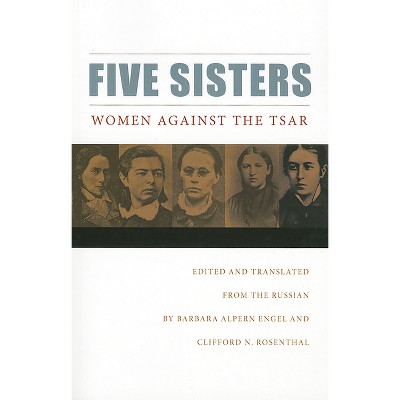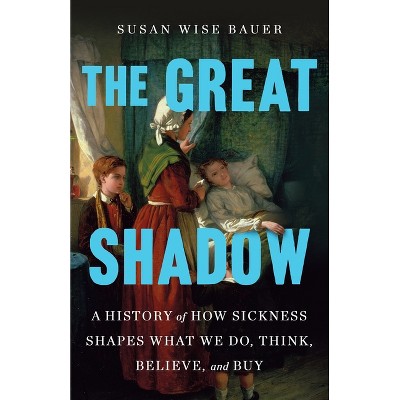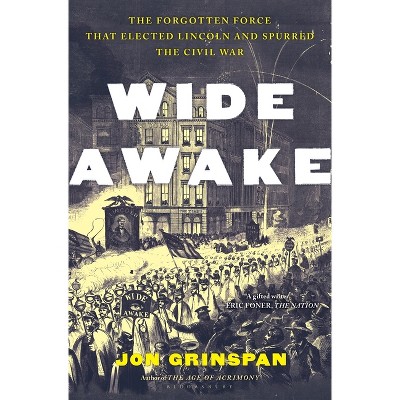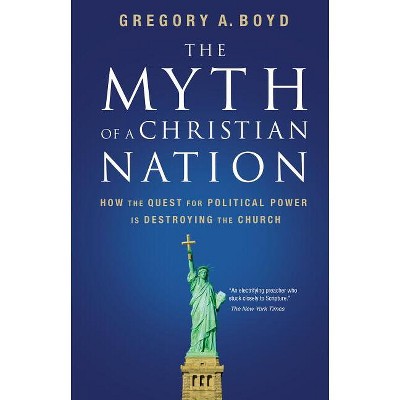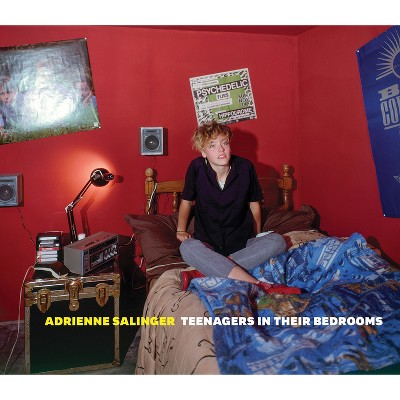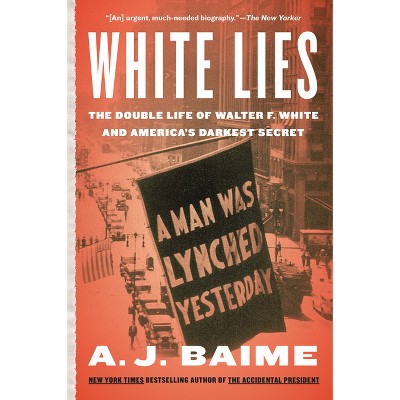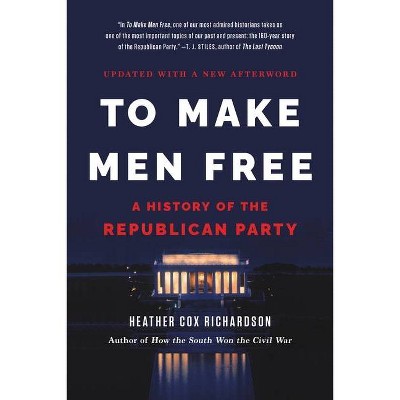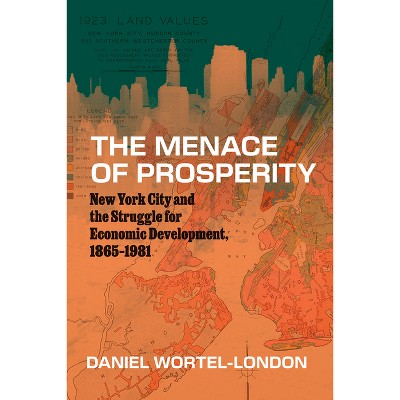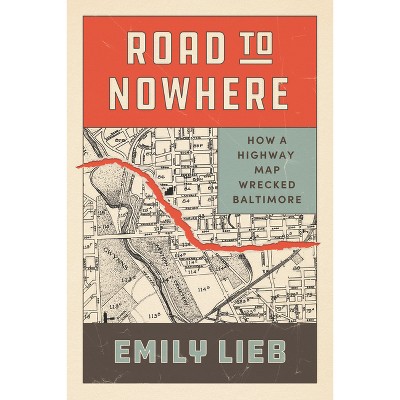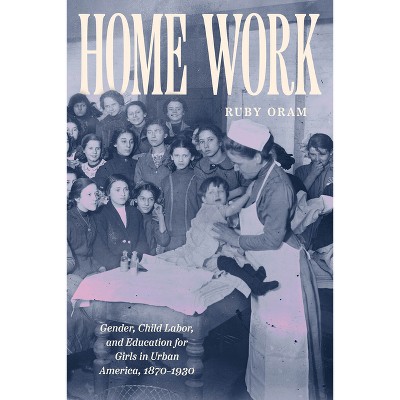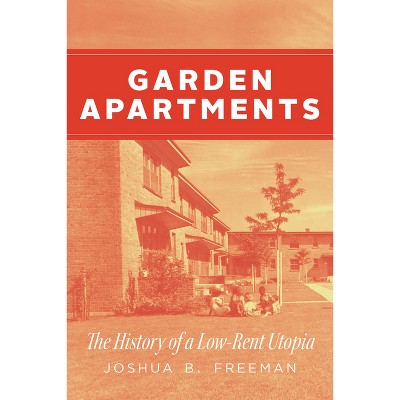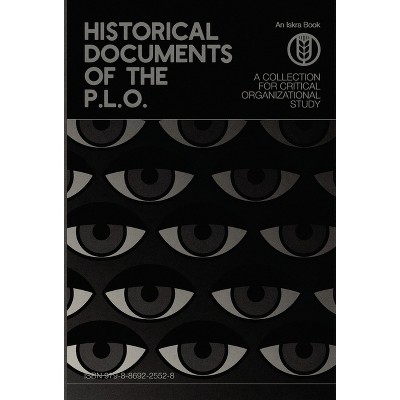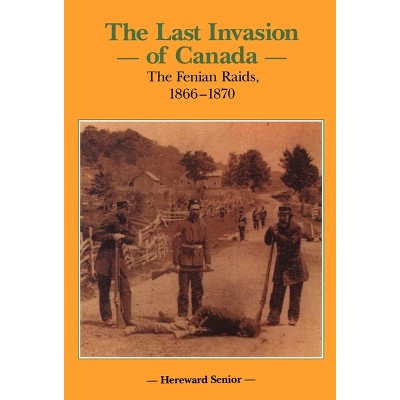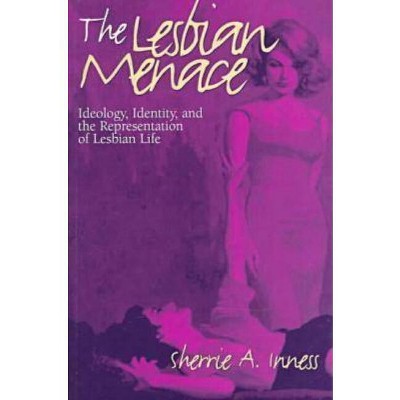Sponsored

The Menace of Prosperity - (Historical Studies of Urban America) by Daniel Wortel-London
$32.50
In Stock
Eligible for registries and wish lists
Sponsored
About this item
Highlights
- Upends entrenched thinking about cities, demonstrating how urban economies are defined--or constrained--by the fiscal imagination of policymakers, activists, and residents.
- About the Author: Daniel Wortel-London is visiting assistant professor of history at Bard College.
- 336 Pages
- History, Americas (North, Central, South, West Indies)
- Series Name: Historical Studies of Urban America
Description
About the Book
"Upends entrenched thinking about cities, demonstrating how urban economies are defined--or constrained--by the fiscal imagination of policymakers, activists, and residents. Many local policymakers make decisions based on a deep-seated belief: what's good for the rich is good for cities. Convinced that local finances depend on attracting wealthy firms and residents, municipal governments lavish public subsidies on their behalf. Whatever form this strategy takes--tax-exempt apartments, corporate incentives, debt-financed mega projects--its rationale remains consistent and is assumed to be true. But this wasn't always the case. Between the 1870s and the 1970s, a wide range of activists, citizens, and intellectuals in New York City connected local fiscal crises to the greed and waste of the rich. These figures saw other routes to development, possibilities rooted in alternate ideas about what was fiscally viable. In The Menace of Prosperity, Daniel Wortel-London argues that urban economics and politics are shaped by what he terms the "fiscal imagination" of policymakers, activists, advocates, and other figures. His survey of New York City during a period of explosive growth shows how residents went beyond the limits of redistributive liberalism to imagine how their communities could become economically viable without the largesse of the wealthy. Their strategies--which included cooperatives, public housing, land-value taxation, public utilities, and more--centered the needs and capabilities of ordinary residents as the basis for local economies that were both prosperous and just. Overturning stale axioms about economic policy, The Menace of Prosperity shows that not all growth is productive for cities. Wortel-London's ambitious history demonstrates the range of options we've abandoned and hints at the economic frameworks we could still realize-and the more democratic cities that might result"--Book Synopsis
Upends entrenched thinking about cities, demonstrating how urban economies are defined--or constrained--by the fiscal imagination of policymakers, activists, and residents. Many local policymakers make decisions based on a deep-seated belief: what's good for the rich is good for cities. Convinced that local finances depend on attracting wealthy firms and residents, municipal governments lavish public subsidies on their behalf. Whatever form this strategy takes--tax-exempt apartments, corporate incentives, debt-financed mega projects--its rationale remains consistent and assumed to be true. But this wasn't always the case. Between the 1870s and the 1970s, a wide range of activists, citizens, and intellectuals in New York City connected local fiscal crises to the greed and waste of the rich. These figures saw other routes to development, possibilities rooted in alternate ideas about what was fiscally viable. In The Menace of Prosperity, Daniel Wortel-London argues that urban economics and politics are shaped by what he terms the "fiscal imagination" of policymakers, activists, advocates, and other figures. His survey of New York City during a period of explosive growth shows how residents went beyond the limits of redistributive liberalism to imagine how their communities could become economically viable without the largesse of the wealthy. Their strategies--which included cooperatives, public housing, land-value taxation, public utilities, and more--centered the needs and capabilities of ordinary residents as the basis for local economies that were both prosperous and just. Overturning stale axioms about economic policy, The Menace of Prosperity shows that not all growth is productive for cities. Wortel-London's ambitious history demonstrates the range of options we've abandoned and hints at the economic frameworks we could still realize--and the more democratic cities that might result.Review Quotes
"Both richly detailed and visionary, The Menace of Prosperity is an ambitious and important new history of New York's recurring struggles over growth and inequality."-- "Forbes"
"The wealth of America's cities are immense; the most important lesson of Wortel-London's magisterial history is that, if tens of thousands of city residents over the years have seen, in their time and in their particular context, a means to tie that wealth less to elite use and more to abundant employment, why shouldn't we join those who are continuing to seek to realize, in today's context, this vision once more?"-- "Front Porch Republic"
"The Menace of Prosperity is a shockingly provocative history of New York's political economy, which targets the conventional wisdom of generations of politicians and scholars. No one escapes Wortel-London's critique. He roasts conservatives who try to subsidize the rich, liberals who try to sustain the system with subsidies to the poor, and neoliberals, who try to do both. Whether or not you agree with Wortel-London, The Menace of Prosperity is a must-read for any scholar or policymaker invested in the city's future."--Jonathan Soffer, author of "Ed Koch and the Rebuilding of New York City"
"During the nineteenth and twentieth centuries, New York City became the nation's and then the world's capital of capital. But to those who lived there, New York City remained just that--a city of working families who rode subways and buses, sent their kids to public schools, and struggled to pay the rent. As Wortel-London brilliantly shows in this compelling book, the work and welfare of New Yorkers and the public servants they elected was shaped and often dictated by the ideologies and interests of capital. From the C-suites of global financial institutions, the destiny of New York City was decided. Wortel-London's timely book reminds us that the goods of 'economic growth' aren't distributed evenly or fairly, and that by chasing it we cheat ourselves out of a better and more livable future for all."--Brian Phillips Murphy, author of "Building the Empire State: Political Economy in the Early Republic"
"Wortel-London offers a timely primer on the history of urban economic development, demonstrating how time and again the desire to grow New York City's economy did more to widen inequality than to solve fiscal woes. The Menace of Prosperity challenges the orthodoxy that all growth is good and powerfully asserts that there were--and are--alternative approaches to the elite-driven urban development that has dominated US cities since the nineteenth century. A more just economic future depends on a reckoning with past failures, and Wortel-London has provided a carefully researched and compellingly written account that those who work in urban policy today would do well to consult."--Claire Dunning, author of "Nonprofit Neighborhoods: An Urban History of Inequality and the American State"
About the Author
Daniel Wortel-London is visiting assistant professor of history at Bard College.Dimensions (Overall): 8.99 Inches (H) x 6.11 Inches (W) x .73 Inches (D)
Weight: 1.06 Pounds
Suggested Age: 22 Years and Up
Number of Pages: 336
Genre: History
Sub-Genre: Americas (North, Central, South, West Indies)
Series Title: Historical Studies of Urban America
Publisher: University of Chicago Press
Format: Paperback
Author: Daniel Wortel-London
Language: English
Street Date: September 24, 2025
TCIN: 1006060333
UPC: 9780226841113
Item Number (DPCI): 247-32-1474
Origin: Made in the USA or Imported
If the item details aren’t accurate or complete, we want to know about it.
Shipping details
Estimated ship dimensions: 0.73 inches length x 6.11 inches width x 8.99 inches height
Estimated ship weight: 1.06 pounds
We regret that this item cannot be shipped to PO Boxes.
This item cannot be shipped to the following locations: American Samoa (see also separate entry under AS), Guam (see also separate entry under GU), Northern Mariana Islands, Puerto Rico (see also separate entry under PR), United States Minor Outlying Islands, Virgin Islands, U.S., APO/FPO
Return details
This item can be returned to any Target store or Target.com.
This item must be returned within 90 days of the date it was purchased in store, shipped, delivered by a Shipt shopper, or made ready for pickup.
See the return policy for complete information.
Frequently bought together

$8.99
Buy 1, get 1 50% off select books
5 out of 5 stars with 1 ratings
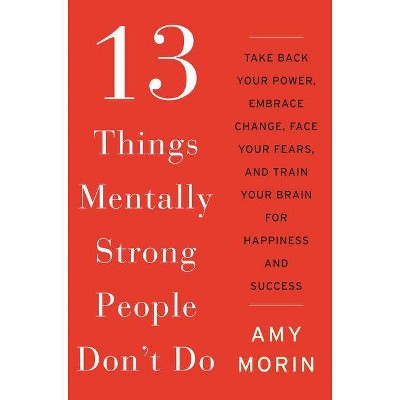
$10.81 - $14.77
Buy 1, get 1 50% off select books
4.9 out of 5 stars with 15 ratings
